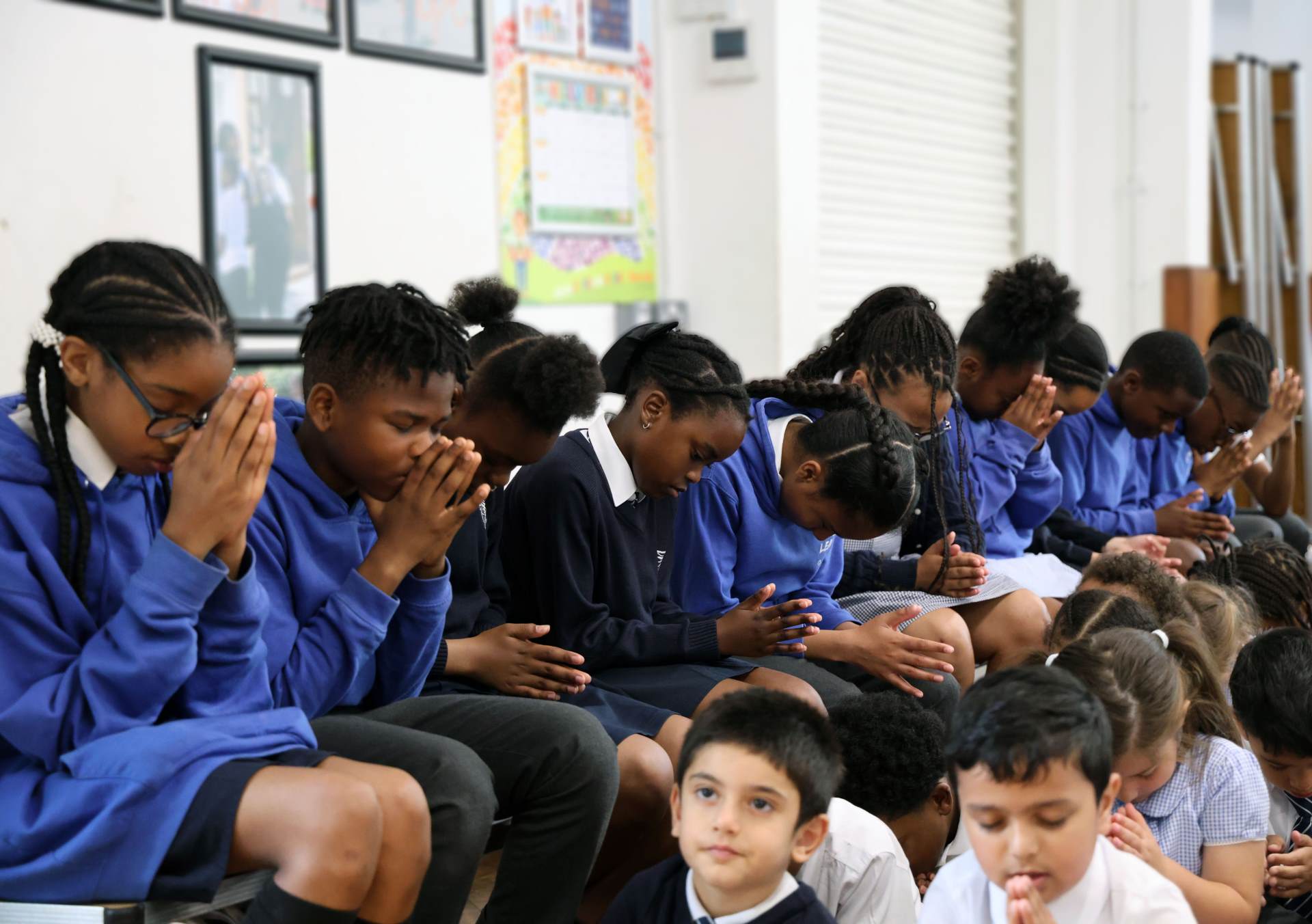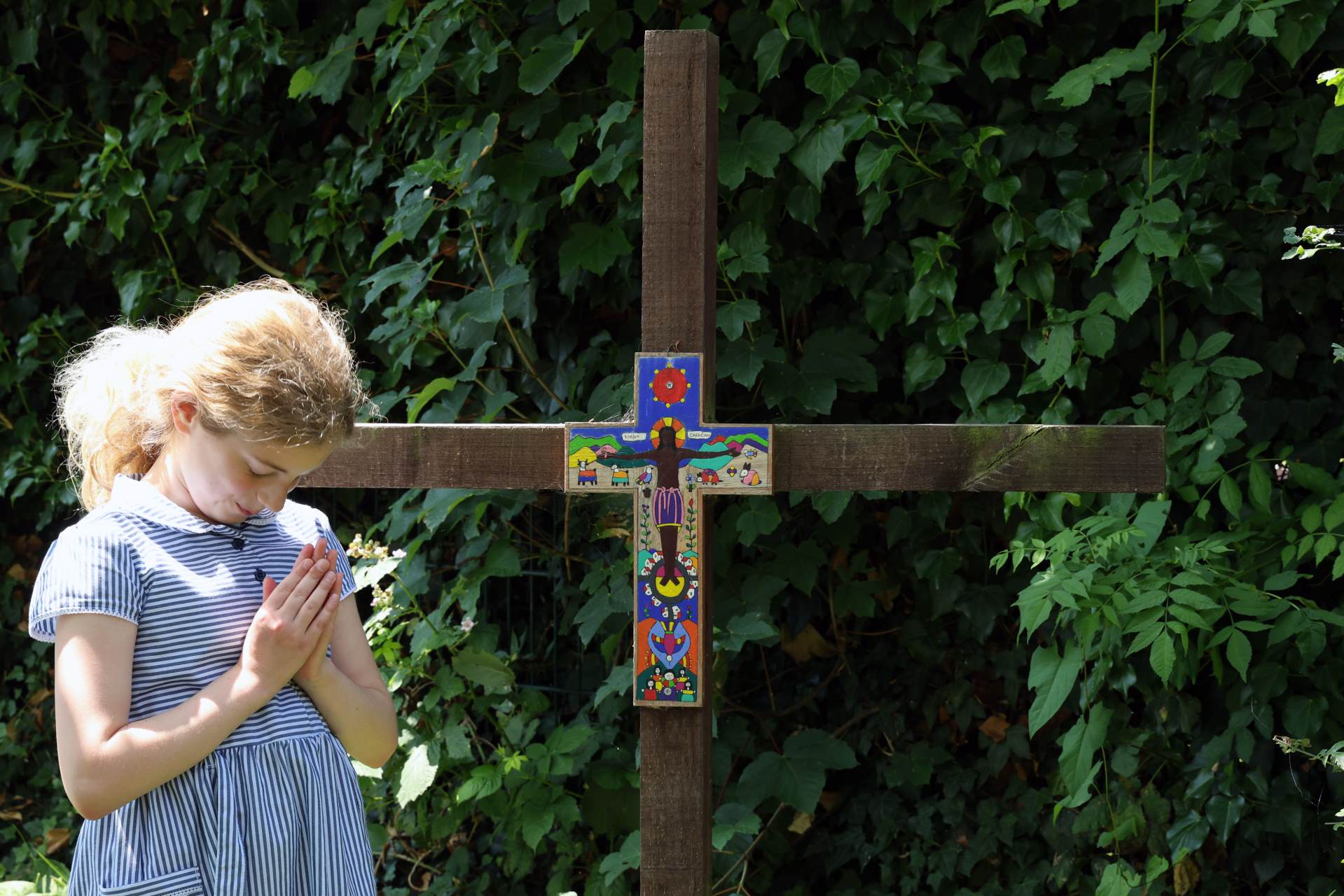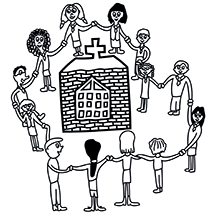RE (ReLIGIOUS EDUCATION)
"All religions, cultures, and beliefs deserve the same amount of respect, even if they are different from your own." "If you are unable to love and respect someone because they don't believe as you do, maybe you need to have another look at what it is that you believe in."

Why do we teach RE?
Religious Education plays an important role in reflecting and conveying the distinctively Christian character of the school. With the school's vision 'for every child to live an abundant life', the child's sense of own identity and worth as well as their personal beliefs and values are developed through the teaching of RE. Embedding core values will help the children to make reasoned and informed responses to life issues and moral choices. The RE curriculum helps children to develop both knowledge and understanding of Christianity as well as the other major world religions, including Judaism, Islam, Hinduism, Buddhism and Sikhism. We want to give the children a platform to develop deeper thinking and reflect on truth, belief and faith. Religious Education is also an opportunity to foster children's feelings of awe, wonder, joy and mystery and to extend their natural curiosity in God's world.

What do we teach?
Our expectations (Impact)
Religious Education (RE) has a significant impact on children's personal, social, and academic development, fostering understanding, respect, and critical thinking skills. RE lessons can contribute to a child's spiritual, moral, social, and cultural development by encouraging empathy, respect for diversity, and thoughtful engagement with complex questions about life, belief, and values.
 St Michael's C
of E Primary School
St Michael's C
of E Primary School